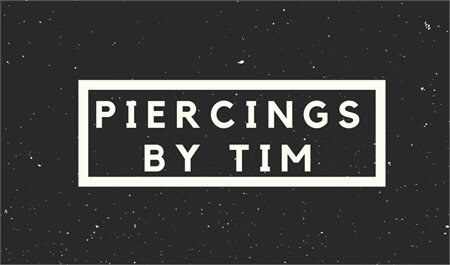Looking after your piercings.
Keep them clean.
Sterile saline solution is the key to cleaning the majority of piercings. Neilmed or Stericlens are always available through me. Spray onto your piercings, twice daily, clean and dry using a cotton bud.
The exceptions are oral piercings, where a chlorhexidine based mouthwash is ideal, septum where you would only use boiled and cooled water, and intimate piercings where feminine intimate washes are perfect.
Clean gently, removing any dirt that comes off easily, but leave any crusties that are stuck on until they are ready to be removed.
No tea tree oil, crushed aspirin paste, tcp, surgical spirit etc. These all have reasons not to use them but the main one is that they are usually too harsh.
Keep them safe.
Don’t play with your piercings. Don’t twist your piercings. Leave them alone!
If you are finding that something is irritating your piercings, such as clothes rubbing on them, stop the irritation.
Your piercing likely will have been pierced with a longer bar to deal with swelling. Once the swelling has gone down, get it downsized.
Do not sleep on your ear piercings. If you are finding that you are sleeping on your piercings, plastic hair clips can stop you sleeping on them, or travel pillows can help keep them safe.
Swimming with fresh piercings is not recommended. Please leave it at least a month before swimming in pools or the ocean.
Deal with any issues.
Unfortunately, piercings don’t always heal as easily as you would hope. The main issue that I see is irritation bumps. These are not keloids.
The first thing to do is identify what is irritating the piercing. Usually, playing with it, sleeping on it, or catching it are the main culprits. Remove this irritation, and it should correct itself. Always feel free to visit your piercer to help work out what the issue is.
Never pick your bumps, or use any strange chemicals on them. Tea tree and hydrogen peroxide are two common recommendations, and they should never be used. The cause serious additional issues.
Other things to watch out for are over swelling, where you will need a longer piece of jewellery, and infection. If you believe that you have an infection, seeking medical assistance is recommended. Symptoms include excessive swelling and redness, high temperatures in the area, fever, peculiar odour coming from the piercing and a general feeling of unwell.

